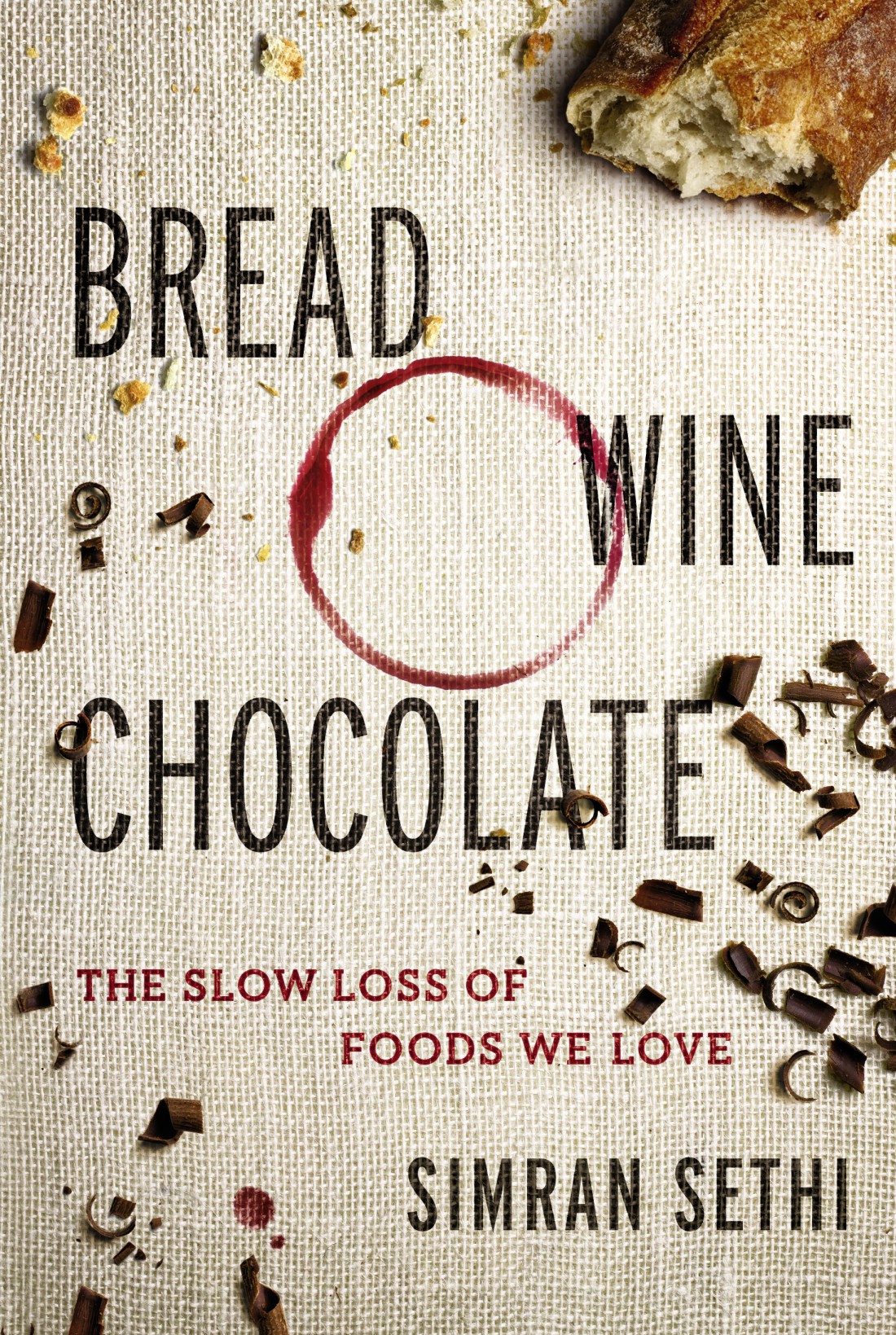“I thought I knew food,” author Simran Sethi says. However, when Sethi was studying genetically engineered foods in Rome, the scientists she interviewed expressed a greater concern with the loss of biodiversity on a global scale. First, she asked them to define the unfamiliar terms. Shortly after that, Sethi sold her house, quit her job and began a five-year exploration across six continents to understand the issue.
She’ll discuss the resulting book, Bread, Wine, Chocolate: The Slow Loss of Foods We Love, during free tasting events at Malaprop’s and French Broad Chocolate Lounge.
“I started to learn about how the diversity in our food and every component that makes food and agriculture possible has been compromised,” Sethi says, noting a loss of diversity in soil, pollinators, seeds, livestock and more.
Initially, Sethi says she planned to frame her story around nutritional staples like wheat, rice and corn, but she later decided on more exciting targets: bread, wine and chocolate. “These are the things that I don’t want to go away. … Are you telling me my chocolate’s being compromised? Really?”
The selection of widely loved staples, Sethi says, was also a way to reach her target audience. The book isn’t geared toward foodies, intellectuals or scientists. “This is for all of us,” she says, “because every one of our foods and drinks is threatened.”
“The reason we need to preserve biodiversity is because of what may or may not happen in the future,” she says. “Climate change, pests, diseases, global trade agreements — we don’t know what’s ahead of us.” Diversification — the concept investors use to mitigate undue risk — is equally applicable to our food systems, she argues. In addition to bolstering resilience, it allows for the preservation of regions’ terroir with respect to food (not just wine).
Instead, what researchers call the global standard diet of wheat, rice, corn, soy beans and palm oil “is increasingly what the whole world is eating.”
“It looks like we have a lot of choice now, but the global trend is toward sameness,” says Sethi, offering WalMart as an example. The grocer carries more than 100 ice creams and yogurts, “but 90 percent of them come from one breed of cow.”
Sethi points to multiple parties that can work to reverse damaging trends in food-supply chains. Growing a wider array of species is helpful in addition to preserving lands where wild foods flourish, she says. But, at its core, Bread, Wine, Chocolate is a plea for the everyday eater to join the conversation through “creating a demand for farmers to grow what we love.”
During her extensive travels, Sethi returned to her home state of North Carolina, where she partnered with Raleigh-based wheat breeder David Marshall of NC State University and the U.S. Department of Agriculture. She also ventured to Asheville to interview miller Jennifer Lapidus of Carolina Ground, David Bauer of Farm & Sparrow Breads and Tara Jensen of Smoke Signals Bakery.
Marshall breeds grains that thrive throughout the supply chain, meaning they grow, mill and bake well. Those strains are then cultivated by farmers in neighboring states and processed by Lapidus, whose flours and grains are finally sold to bakers like Bauer and Jensen. Sethi dubs this conscious supply system Asheville’s “grain-to-loaf” movement.
Other than California’s tight-knit wine regions, “there’s really no other story that comes together that way” in the book. For Sethi, the chain is symbolic of a greater win — encompassing taste, culture, people, spirituality and self. “And yes, it’s delicious.”



Before you comment
The comments section is here to provide a platform for civil dialogue on the issues we face together as a local community. Xpress is committed to offering this platform for all voices, but when the tone of the discussion gets nasty or strays off topic, we believe many people choose not to participate. Xpress editors are determined to moderate comments to ensure a constructive interchange is maintained. All comments judged not to be in keeping with the spirit of civil discourse will be removed and repeat violators will be banned. See here for our terms of service. Thank you for being part of this effort to promote respectful discussion.